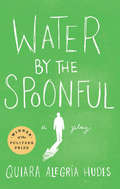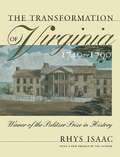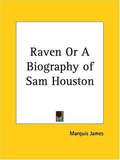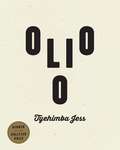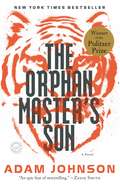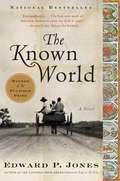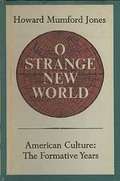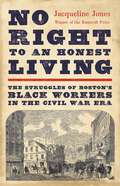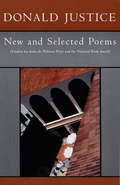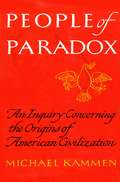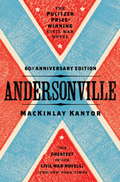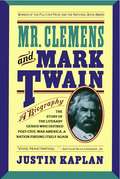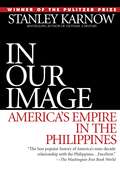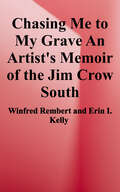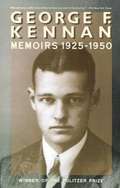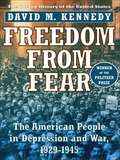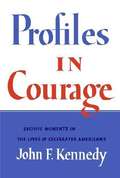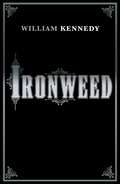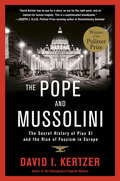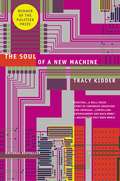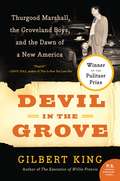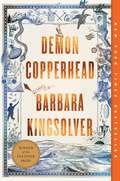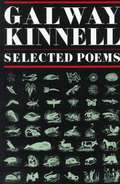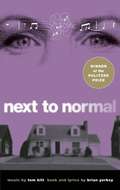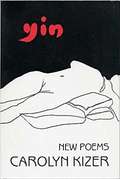Special Collections
Pulitzer Prize Award Winners
Description: Bookshare is pleased to offer the following titles, winners of the Pulitzer Prize Award. Note: Some drama winners are available and are listed under Fiction awards. #award
- Table View
- List View
Water by the Spoonful
by Quiara Alegría Hudes"Hudes brilliantly taps into both the family ties that bind as well as the alternative cyber universe. . . . Her dialogue is bright, her characters, compelling. . . . It's only when cyber meets the real world that anger gives way to forgiveness and resistance becomes redemption; the heart of the play opens up and the waters flow freely."-Variety"A very funny, warm and, yes, uplifting play with characters that are vivid, vital and who stay with you long after the play is over."-Hartford Courant"Ms. Hudes possesses a confident and arresting voice."-The New York TimesWinner of the 2012 Pulitzer Prize for Drama, Quiara Alegría Hudes's drama is a heartbreaking, funny, and inspiring account of the search for family in both conventional and unconventional places.Somewhere in Philadelphia, Elliot has returned from Iraq and is struggling to find his place in the world, while somewhere in a chat room, recovering addicts forge an unbreakable bond of support and love. The boundaries of family and friendship are stretched across continents and cyberspace as birth families splinter and online families collide.Water by the Spoonful is the second installment in a trilogy of plays that follow Elliot, a young veteran of the Iraq War. The trilogy's first play, Elliot, A Soldier's Fugue, was a finalist for the 2007 Pulitzer Prize and will be published by Theatre Communications Group concurrently with Water by the Spoonful. The trilogy's final play, The Happiest Song Plays Last, premiered in April 2012 at Chicago's renowned The Goodman Theatre.
The Transformation of Virginia, 1740-1790
by Rhys IsaacIn this Pulitzer Prize-winning book, Rhys Isaac describes and analyzes the dramatic confrontations--primarily religious and political--that transformed Virginia in the second half of the eighteenth century. Making use of the observational techniques of the cultural anthropologist, Isaac vividly recreates and painstakingly dissects a society in the turmoil of profound inner change.
The Raven
by Marquis JamesThis work tells the tale of Sam Houston: United States Senator; military hero; protégé of Andrew Jackson and Tennessee's Young Man of Destiny; General and President of the Texas Republic; Ambassador of the Cherokee Nation of Indians and adoptee of the Cherokee people; and as trouble brewed with Mexico, he was chosen commander in chief of the Texan provisional government.
Pulitzer Prize Winner
Olio
by Tyehimba JessWinner of the 2017 Pulitzer Prize in Poetry
Winner of the 2017 Anisfield-Wolf Book Award in Poetry
Winner of the 2017 Book Award from the Society of Midland Authors for Poetry
2016 National Book Critics Circle Award finalist for poetry
2017 PEN/Jean Stein Book Award finalist
2017 Kingsley Tufts Poetry Award finalist
Named a top poetry book of spring 2016 by Library Journal
Part fact, part fiction, Tyehimba Jess's much anticipated second book weaves sonnet, song, and narrative to examine the lives of mostly unrecorded African American performers directly before and after the Civil War up to World War I. Olio is an effort to understand how they met, resisted, complicated, co-opted, and sometimes defeated attempts to minstrelize them.
The Orphan Master's Son
by Adam JohnsonPak Jun Do is the haunted son of a lost mother—a singer “stolen” to Pyongyang—and an influential father who runs a work camp for orphans. Superiors in the North Korean state soon recognize the boy’s loyalty and keen instincts. Considering himself “a humble citizen of the greatest nation in the world,” Jun Do rises in the ranks. He becomes a professional kidnapper who must navigate the shifting rules, arbitrary violence, and baffling demands of his overlords in order to stay alive. Driven to the absolute limit of what any human being could endure, he boldly takes on the treacherous role of rival to Kim Jong Il in an attempt to save the woman he loves, Sun Moon, a legendary actress “so pure, she didn’t know what starving people looked like.”
Part breathless thriller, part story of innocence lost, part story of romantic love, The Orphan Master’s Son is also a riveting portrait of a world heretofore hidden from view: a North Korea rife with hunger, corruption, and casual cruelty but also camaraderie, stolen moments of beauty, and love.
The Known World
by Edward JonesThe Known World tells the story of Henry Townsend, a black farmer and former slave who falls under the tutelage of William Robbins, the most powerful man in Manchester County, Virginia. Making certain he never circumvents the law, Townsend runs his affairs with unusual discipline. But when death takes him unexpectedly, his widow, Caldonia, can't uphold the estate's order, and chaos ensues. Jones has woven a footnote of history into an epic that takes an unflinching look at slavery in all its moral complexities.
Winner of the 2004 Pulitzer Prize for fiction and the 2003 National Book Critics Circle Award for Fiction. Finalist for the 2003 National Book Award for Fiction.
O Strange New World
by Howard Mumford JonesDescribes the discovery, the invention, the definition, and the self-realization of America, and the elusive sense of the wonder and excitement of the unveiling of a new world.
Pulitzer Award winner.
No Right to An Honest Living (Winner of the Pulitzer Prize)
by Jacqueline JonesWINNER OF THE PULITZER PRIZE IN HISTORY A &“sensitive, immersive, and exhaustive&” portrait of Black workers and white hypocrisy in nineteenth-century Boston, from &“a gifted practitioner of labor history and urban history&” (Tiya Miles, National Book Award-winning author of All That She Carried) Impassioned antislavery rhetoric made antebellum Boston famous as the nation&’s hub of radical abolitionism. In fact, however, the city was far from a beacon of equality. In No Right to an Honest Living, historian Jacqueline Jones reveals how Boston was the United States writ small: a place where the soaring rhetoric of egalitarianism was easy, but justice in the workplace was elusive. Before, during, and after the Civil War, white abolitionists and Republicans refused to secure equal employment opportunity for Black Bostonians, condemning most of them to poverty. Still, Jones finds, some Black entrepreneurs ingeniously created their own jobs and forged their own career paths. Highlighting the everyday struggles of ordinary Black workers, this book shows how injustice in the workplace prevented Boston—and the United States—from securing true equality for all.
New and Selected Poems
by Donald Justice"He is one of our finest poets, " Anthony Hecht has said of Donald Justice. Winner most recently of a 1996 Lannan Literary Award, Justice has been the recipient of almost every contemporary grant and prize for poetry, from the Lamont to the Bollingen and the Pulitzer. The present volume replaces his 1980 Selected Poems and contains, in addition, poems from the last 15 years.
Pulitzer Prize Winner
People of Paradox
by Michael KammenFrom the beginning, what has given our culture its distinctive texture, pattern, and thrust, according to Michael Kammen, is the dynamic interaction of the imported and the indigenous. He shows how, during the years of colonization, some ideas and institutions were transferred virtually intact from Britain, while, simultaneously, others were being transformed in the New World. As he unravels the tangled origins of our culture, he makes us see that unresolved contradictions in the American experience have created our national style. Puritanical and hedonistic, idealistic and materialistic, peace-loving and war-mongering: these opposing strands go back to the genesis of our history.
Pulitzer Prize Winner
Andersonville
by Mackinlay KantorMacKinlay Kantor’s Andersonville tells the story of the notorious Confederate Prisoner of War camp, where fifty thousand Union soldiers were held captive—and fourteen thousand died—under inhumane conditions.
Pulitzer Prize Winner
Mr. Clemens and Mark Twain
by Justin KaplanMark Twain, the American comic genius who portrayed, named, and in part exemplified America's "Gilded Age," comes alive -- a presence felt, an artist understood -- in Justin Kaplan's extraordinary biography.
With brilliant immediacy, Mr. Clemens and Mark Twain brings to life a towering literary figure whose dual persona symbolized the emerging American conflict between down-to-earth morality and freewheeling ambition. As Mark Twain, he was the Mississippi riverboat pilot, the satirist with a fiery hatred of pretension, and the author of such classics as Tom Sawyer and Huckleberry Finn. As Mr. Clemens, he was the star who married an heiress, built a palatial estate, threw away fortunes on harebrained financial schemes, and lived the extravagant life that Mark Twain despised. Kaplan effectively portrays the triumphant-tragic man whose achievements and failures, laughter and anger, reflect a crucial generation in our past as well as his own dark, divided, and remarkably contemporary spirit.
The book begins as the thirty-one-year-old Mark Twain, carrying bottled within himself the experience of his boyhood in Hannibal and his coming-of-age on the Mississippi and on Nevada's silver-rush frontier, quits San Francisco and the old elemental America of the open spaces. He is heading east for the burgeoning new urban America of commerce, invention, finance, and status, where he is destined to marry well, hobnob with the rich and influential, throw away fortunes on tragically alluring schemes...and produce literary works that fulfill and go beyond the vocation he has already acknowledged: "to excite the laughter of God's creatures." He is heard, seen, made palpable. The texture of his marriage with Olivia Langdon, the protean presence of Mark Twain on the lecture platform, his friendships and enmities -- virtually all his closest relationships partook of both -- spring to life. His writing and publishing experience is organically re-created. His endurance in the face of personal tragedy, his unrivaled charm, his compulsion to quarrel, his humility and his vanity are evoked and felt. His wit rings through the book. "Honest poverty is a gem that even a King might be proud to call his own, but I wish to sell out. I have sported that kind of jewelry long enough." Thus the young Mark Twain, on the eve of world fame, spoke his disgust at a money-centered society in that blatantly philistine voice that he chose for his most savage satirical declarations. But all his life -- racked by his own ambivalences -- he was to embrace the values of that society. Mr. Clemens and Mark Twain brilliantly conveys this towering literary figure who was himself a symbol of the peculiarly American conflict between moral scrutiny and the drive to succeed. Mr. Clemens lived the Gilded Life that Mark Twain despised. The merging and fragmenting of these and other identities, as the biography unfolds, results in a magnificent projection of the whole man; the great comic spirit; and the exuberant, tragic human being, who, his friend William Dean Howells said, was "sole, incomparable, the Lincoln of our literature."
Winner of the National Book Award
Pulitzer Prize Winner
In Our Image
by Stanley KarnowTraces the history of the Philippines, discusses the influence of Spain and the United States, and looks at the problems facing the Philippines today.
Chasing Me to My Grave
by Erin I. Kelly and Winfred RembertWinfred Rembert grew up in a family of Georgia field laborers and joined the Civil Rights Movement as a teenager. He was arrested after fleeing a demonstration, survived a near-lynching at the hands of law enforcement, and spent seven years on chain gangs.
During that time he met the undaunted Patsy, who would become his wife. Years later, at the age of fifty-one and with Patsy's encouragement, he started drawing and painting scenes from his youth using leather tooling skills he learned in prison.
Chasing Me to My Grave presents Rembert's breathtaking body of work alongside his story, as told to Tufts Philosopher Erin I. Kelly. Rembert, calls forth vibrant scenes of Black life on Cuthbert, Georgia's Hamilton Avenue, where he first glimpsed the possibility of a life outside the cotton field. As he pays tribute, exuberant and heartfelt, to Cuthbert's Black community and the people, including Patsy, who helped him to find the courage to revisit a traumatic past, Rembert brings to life the promise and the danger of Civil Rights protest, the brutalities of incarceration, his search for his mother's love, and the epic bond he found with Patsy.
Vivid, confrontational, revelatory, and complex, Chasing Me to My Grave is a searing memoir in prose and painted leather that celebrates Black life and summons readers to confront painful and urgent realities at the heart of American history and society.
Memoirs (1925-1950)
by George F. KennanThe American diplomat's reflections of his years of government service provide insight into four decades of U.S. policy
Winner of the National Book Award
Pulitzer Prize Winner
Freedom From Fear
by David M. KennedyAmerica During the Depression and World War II.
Pulitzer Prize Winner
Profiles in Courage
by John Fitzgerald Kennedy"This is a book about that most admirable of human virtues--courage... and these are the stories of the pressures experienced by eight United States Senators and the grace with which they endured them--the risks to their careers, the unpopularity of their courses, the defamation of their characters, and sometimes, but sadly only sometimes, the vindication of their reputations and their principles."
During 1954-1955, John F. Kennedy, then a U.S. Senator, chose eight of his historical colleagues to profile for their acts of astounding integrity in the face of overwhelming opposition. These heroes include John Quincy Adams, Daniel Webster, Thomas Hart Benton, and Robert A. Taft.
Awarded the Pulitzer Prize in 1957, Profiles in Courage resounds with timeless lessons on the most cherished of virtues and is a powerful reminder of the strength of the human spirit.
Ironweed
by William KennedyIronweed, winner of the Pulitzer Prize, is the best-known of William Kennedy's three Albany-based novels. Francis Phelan, ex-ballplayer, part-time gravedigger, full-time drunk, has hit bottom. Years ago he left Albany in a hurry after killing a scab during a trolley workers' strike; he ran away again after accidentally - and fatally - dropping his infant son. Now, in 1938, Francis is back in town, roaming the old familiar streets with his hobo pal, Helen, trying to make peace with the ghosts of the past and the present. . .
The Pope and Mussolini
by David I. KertzerFrom National Book Award finalist David I. Kertzer comes the gripping story of Pope Pius XI's secret relations with Italian dictator Benito Mussolini. This groundbreaking work, based on seven years of research in the Vatican and Fascist archives, including reports from Mussolini's spies inside the highest levels of the Church, will forever change our understanding of the Vatican's role in the rise of Fascism in Europe. The Pope and Mussolini tells the story of two men who came to power in 1922, and together changed the course of twentieth-century history. In most respects, they could not have been more different. One was scholarly and devout, the other thuggish and profane. Yet Pius XI and "Il Duce" had many things in common. They shared a distrust of democracy and a visceral hatred of Communism. Both were prone to sudden fits of temper and were fiercely protective of the prerogatives of their office. ("We have many interests to protect," the Pope declared, soon after Mussolini seized control of the government in 1922.) Each relied on the other to consolidate his power and achieve his political goals. In a challenge to the conventional history of this period, in which a heroic Church does battle with the Fascist regime, Kertzer shows how Pius XI played a crucial role in making Mussolini's dictatorship possible and keeping him in power. In exchange for Vatican support, Mussolini restored many of the privileges the Church had lost and gave in to the pope's demands that the police enforce Catholic morality. Yet in the last years of his life--as the Italian dictator grew ever closer to Hitler--the pontiff's faith in this treacherous bargain started to waver. With his health failing, he began to lash out at the Duce and threatened to denounce Mussolini's anti-Semitic racial laws before it was too late. Horrified by the threat to the Church-Fascist alliance, the Vatican's inner circle, including the future Pope Pius XII, struggled to restrain the headstrong pope from destroying a partnership that had served both the Church and the dictator for many years. The Pope and Mussolini brims with memorable portraits of the men who helped enable the reign of Fascism in Italy: Father Pietro Tacchi Venturi, Pius's personal emissary to the dictator, a wily anti-Semite known as Mussolini's Rasputin; Victor Emmanuel III, the king of Italy, an object of widespread derision who lacked the stature--literally and figuratively--to stand up to the domineering Duce; and Cardinal Secretary of State Eugenio Pacelli, whose political skills and ambition made him Mussolini's most powerful ally inside the Vatican, and positioned him to succeed the pontiff as the controversial Pius XII, whose actions during World War II would be subject for debate for decades to come. With the recent opening of the Vatican archives covering Pius XI's papacy, the full story of the Pope's complex relationship with his Fascist partner can finally be told. Vivid, dramatic, with surprises at every turn, The Pope and Mussolini is history writ large and with the lightning hand of truth. Advance praise for The Pope and Mussolini "David Kertzer has an eye for a story, an ear for the right word, and an instinct for human tragedy. They all come together in The Pope and Mussolini to document, with meticulous scholarship and novelistic flair, the complicity between Pius XI and the Fascist leader in creating an unholy alliance between the Vatican and a totalitarian government rooted in corruption and brutality. This is a sophisticated blockbuster."--Joseph J. Ellis, Pulitzer Prize-winning author of Revolutionary Summer
The Soul of a New Machine
by Tracy KidderComputers have changed since 1981, when Tracy Kidder memorably recorded the drama, comedy, and excitement of one company's efforts to bring a new microcomputer to market. What has not changed is the feverish pace of the high-tech industry, the go-for-broke approach to business that has caused so many computer companies to win big (or go belly up), and the cult of pursuing mind-bending technological innovations. The Soul of a New Machine is an essential chapter in the history of the machine that revolutionized the world in the twentieth century.
Winner of the National Book Award
Devil in the Grove
by Gilbert KingArguably the most important American lawyer of the twentieth century, Thurgood Marshall was on the verge of bringing the landmark suit Brown v. Board of Education before the U.S. Supreme Court when he became embroiled in an explosive and deadly case that threatened to change the course of the civil rights movement and cost him his life. In 1949, Florida's orange industry was booming, and citrus barons got rich on the backs of cheap Jim Crow labor. To maintain order and profits, they turned to Willis V. McCall, a violent sheriff who ruled Lake County with murderous resolve. When a white seventeen-year-old Groveland girl cried rape, McCall was fast on the trail of four young blacks who dared to envision a future for themselves beyond the citrus groves. By day's end, the Ku Klux Klan had rolled into town, burning the homes of blacks to the ground and chasing hundreds into the swamps, hell-bent on lynching the young men who came to be known as "the Groveland Boys." And so began the chain of events that would bring Thurgood Marshall, the man known as "Mr. Civil Rights," into the deadly fray. Associates thought it was suicidal for him to wade into the "Florida Terror" at a time when he was irreplaceable to the burgeoning civil rights movement, but the lawyer would not shrink from the fight-not after the Klan had murdered one of Marshall's NAACP associates involved with the case and Marshall had endured continual threats that he would be next. Drawing on a wealth of never-before-published material, including the FBI's unredacted Groveland case files, as well as unprecedented access to the NAACP's Legal Defense Fund files, King shines new light on this remarkable civil rights crusader, setting his rich and driving narrative against the heroic backdrop of a case that U.S. Supreme Court justice Robert Jackson decried as "one of the best examples of one of the worst menaces to American justice."
Demon Copperhead
by Barbara KingsolverWINNER OF THE 2023 PULITZER PRIZE • WINNER OF THE WOMEN'S PRIZE FOR FICTIONA New York Times "Ten Best Books of 2022" • An Oprah’s Book Club Selection • An Instant New York Times Bestseller • An Instant Wall Street Journal Bestseller • A #1 Washington Post Bestseller "Demon is a voice for the ages—akin to Huck Finn or Holden Caulfield—only even more resilient.” —Beth Macy, author of Dopesick"May be the best novel of 2022. . . . Equal parts hilarious and heartbreaking, this is the story of an irrepressible boy nobody wants, but readers will love.” (Ron Charles, Washington Post)From the acclaimed author of The Poisonwood Bible and The Bean Trees, a brilliant novel that enthralls, compels, and captures the heart as it evokes a young hero’s unforgettable journey to maturitySet in the mountains of southern Appalachia, Demon Copperhead is the story of a boy born to a teenaged single mother in a single-wide trailer, with no assets beyond his dead father’s good looks and copper-colored hair, a caustic wit, and a fierce talent for survival. Relayed in his own unsparing voice, Demon braves the modern perils of foster care, child labor, derelict schools, athletic success, addiction, disastrous loves, and crushing losses. Through all of it, he reckons with his own invisibility in a popular culture where even the superheroes have abandoned rural people in favor of cities.Many generations ago, Charles Dickens wrote David Copperfield from his experience as a survivor of institutional poverty and its damages to children in his society. Those problems have yet to be solved in ours. Dickens is not a prerequisite for readers of this novel, but he provided its inspiration. In transposing a Victorian epic novel to the contemporary American South, Barbara Kingsolver enlists Dickens’ anger and compassion, and above all, his faith in the transformative powers of a good story. Demon Copperhead speaks for a new generation of lost boys, and all those born into beautiful, cursed places they can’t imagine leaving behind.
Selected Poems
by Galway KinnellThe poems include two of Kinnell's most frequently reprinted poems, "Saint Francis and the Sow" and "After Making Love We Hear Footsteps" Kinnell draws for his poetry from experiences living in Vermont and New York, as well as from teaching in France, Australia, Iran, and many colleges and universities in this country. Kinnell is now retired from his position as the director of the Creative Writing Program at New York University.
Winner of the National Book Award
Pulitzer Prize Winner
Next to Normal
by Tom Kitt and Brian YorkeyWinner of the 2010 Pulitzer Prize for Drama"Rock is alive and rolling like thunder in Next to Normal. It's the best musical of the season by a mile...an emotional powerhouse with a fire in its soul and a wicked wit that burns just as fiercely."-Rolling Stone"No show on Broadway right now makes as a direct grab for the heart-or wrings it as thoroughly-as Next to Normal does. . . . [It] focuses squarely on the pain that cripples the members of a suburban family, and never for a minute does it let you escape the anguish at the core of their lives. Next to Normal does not, in other words, qualify as your standard feel-good musical. Instead this portrait of a manic-depressive mother and the people she loves and damages is something much more: a feel-everything musical, which asks you, with operatic force, to discover the liberation in knowing where it hurts."-Ben Brantley, The New York TimesWinner of three 2009 Tony Awards, including Best Original Score (Music and/or Lyrics) Written for the Theatre, Next to Normal is also available in an original cast recording. It was named Best Musical of the Season by Rolling Stone, The Washington Post, Los Angeles Times, and The New York Times.Brian Yorkey received the 2009 Tony Award for Best Original Score for his work on Next to Normal and was also nominated for Best Book of a Musical. His other credits include Making Tracks and Time After Time.Tom Kitt received two 2009 Tony Awards for Best Original Score and Best Orchestrations for Next to Normal. He also composed the music for High Fidelity and From Up Here. His string arrangements appear on the new Green Day album 21st Century Breakdown, and he is the leader of the Tom Kitt Band.
